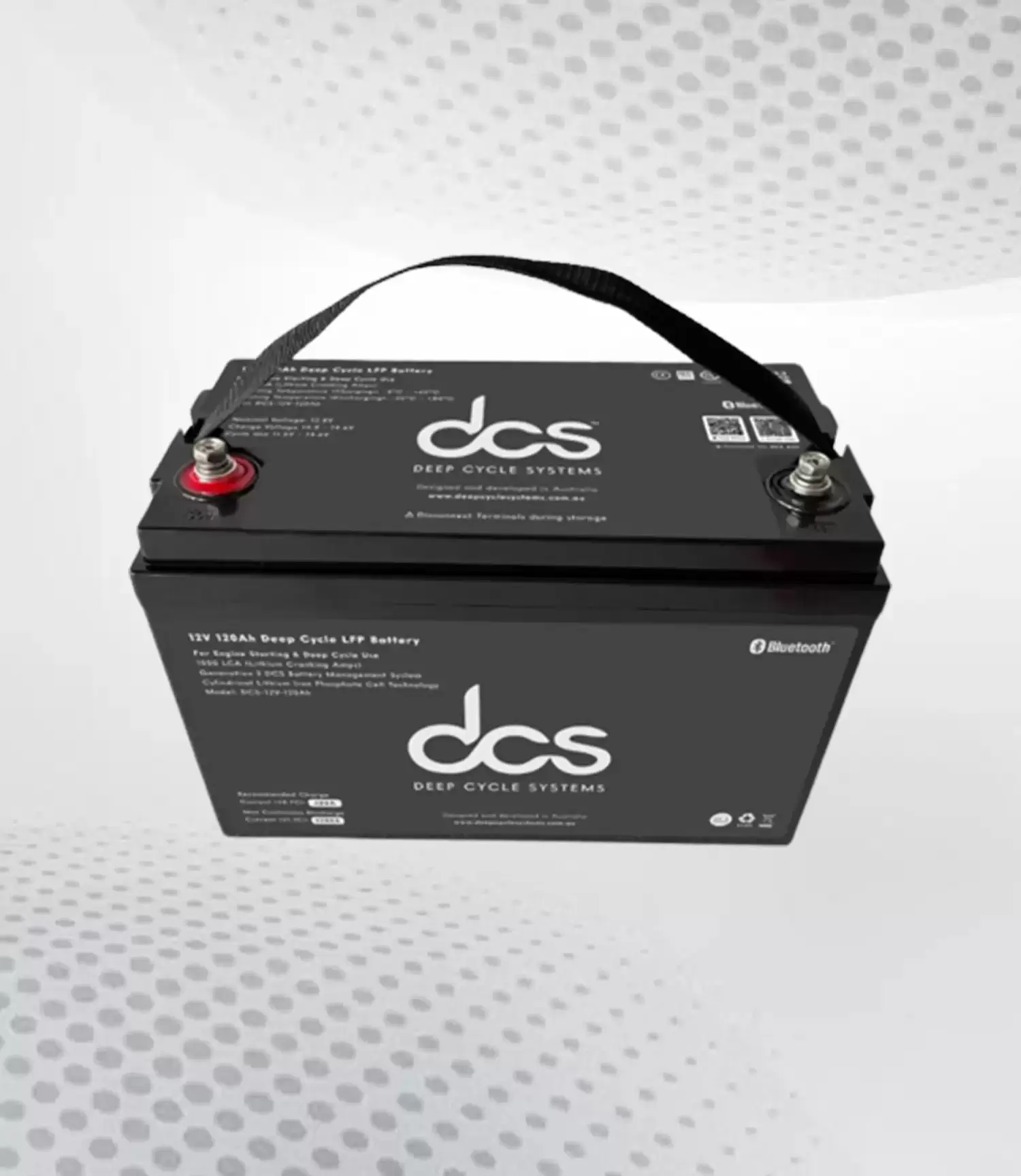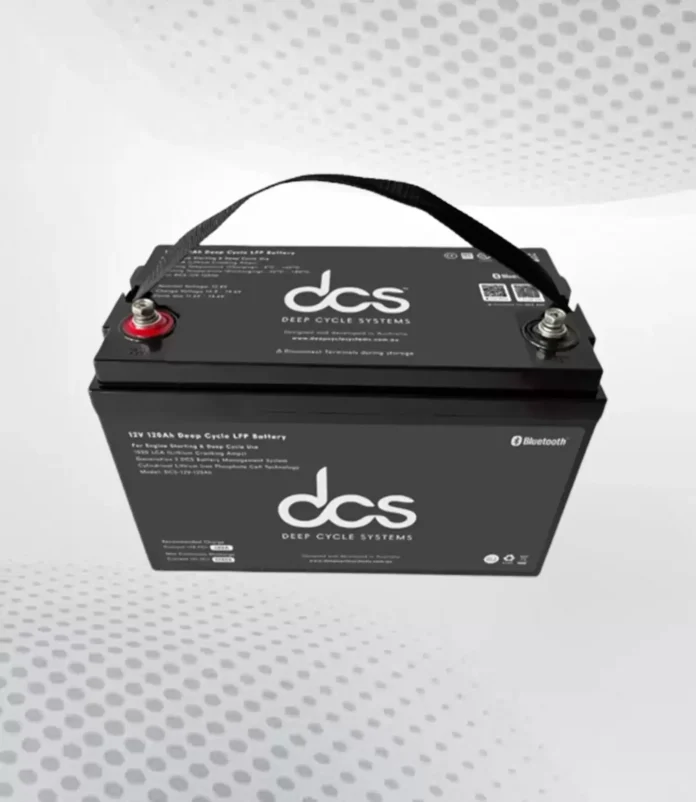Regarding efficient power sources, the 120Ah lithium battery stands out for its lightweight yet durable design. This innovative battery technology has revolutionised various applications, offering a powerful and long-lasting solution for various needs. In this blog post, we will explore the efficiency of the 120-Ah lithium battery and why it is the perfect choice for anyone looking for a reliable power source.
Understanding the Basics of 120-Ah Lithium Batteries
Lithium batteries, celebrated for their remarkable energy density and longevity, have been popular across various sectors. The 120-Ah variant, providing a capacity of 120 ampere-hours, stands out as a significant development in this realm. These units boast a substantial energy reserve, making them exceptionally suited for powering various devices and systems. Characterised by their lightweight structure, 120-Ah lithium batteries offer an optimal solution for applications where portability and efficiency are paramount.
Unlike their lead-acid counterparts, these batteries undergo minimal energy loss during charge and discharge cycles, ensuring a more sustainable and efficient energy use. This efficiency, combined with their compact form factor, underscores the 120-Ah lithium battery’s superiority in delivering dependable power across various uses, from mobile gadgets to robust off-grid systems.
The Advantage of Going Lightweight without Sacrificing Power
One of the pivotal benefits of the 120-Ah lithium battery is its remarkable combination of being lightweight without compromising power. Traditional battery options, notably lead-acid types, have long been burdened by their significant weight, which complicates logistics and installation and limits their versatility and application. However, the advent of lithium technology, embodied in the 120-Ah lithium battery, has heralded a new era where such compromises are no longer necessary.
This lightweight nature opens up many opportunities for applications where weight is a critical factor, such as in mobile and portable devices, electric vehicles, and even aerospace applications. It facilitates ease of handling and reduces the overall load, leading to improved efficiency and performance in various systems. For instance, the reduced weight directly translates to enhanced range and speed in electric vehicles.
Moreover, innovation doesn’t stop with weight reduction. Despite their leaner profile, these batteries do not falter in delivering robust power outputs and retaining energy density. They can sustain prolonged operational periods, ensuring that devices and systems remain functional without requiring frequent recharges. This duality of lightweight construction paired with formidable power provision marks a significant stride forward in battery technology, setting the 120-Ah lithium battery apart as a beacon of efficiency and versatility in the realm of modern energy solutions.
Durability that Stands the Test of Time
The resilience of 120-Ah lithium batteries underpins their ability to endure the wear and tear of daily activities, thus making them an exceptionally reliable source of power for various applications. Engineered for robustness, these batteries showcase an extraordinary tolerance to high and low temperatures, vibrations, and frequent cycling, characteristics that are indispensable for gadgets and vehicles alike. This inherent durability ensures a steady performance over extended periods and significantly reduces the need for replacements, offering a cost-effective solution for energy requirements.
The construction of these batteries incorporates advanced materials and innovative design principles, contributing to their overall longevity and reliability. As a result, users can rely on the 120-Ah lithium battery to power their needs consistently without the anxiety of premature failure or degradation. This steadfast durability, when combined with lithium technology’s lightweight and high-energy capacity, positions the 120-Ah lithium battery as a cornerstone in advancing portable and stationary power solutions.
A Wide Range of Applications for Every Need
The adaptability of the 120-Ah lithium battery ensures it is perfectly suited for a wide variety of uses. This battery’s capabilities extend beyond just powering off-grid systems and electric vehicles; it’s also an excellent choice for renewable energy storage solutions such as solar panels and wind turbines, providing a dependable power reserve during low sunlight or wind. In marine applications, the 120-Ah lithium battery stands out for its corrosion resistance, making it ideal for powering boats and other watercraft.
Furthermore, its high energy density and efficiency make it a prime candidate for use in portable electronics, medical equipment, and emergency power supplies, ensuring that critical devices operate uninterrupted in crucial situations. For recreational use, it finds its place in camping gear, caravans, and golf carts, allowing users to enjoy modern conveniences without being tethered to the grid. The breadth of potential applications showcases the battery’s unparalleled flexibility. It underscores its role as a transformative element in various sectors, driving innovation and enhancing performance in everyday and specialised devices.
The Environmental Edge of Lithium Batteries
Opting for 120-Ah lithium batteries elevates the performance and efficiency of power systems and significantly contributes to environmental sustainability. Unlike traditional battery technologies, such as lead-acid batteries, lithium batteries produce fewer pollutants during production and recycling. This characteristic makes them a more eco-friendly alternative, aligning with global efforts to reduce carbon emissions and environmental degradation. The production of lithium batteries involves fewer hazardous materials, which mitigates the risk of soil and water contamination, a common issue with the disposal of lead-acid batteries.
Furthermore, the high energy density of lithium batteries means that less material is required to store the same amount of energy, reducing the environmental impact associated with material extraction and processing. Another pivotal aspect of lithium batteries is their longer lifespan, which directly translates into decreased waste generation. By enduring more charge-discharge cycles before their performance diminishes, these batteries reduce the frequency of replacements, curtailing the volume of battery waste and the demand for raw materials.
This longevity also contributes to conserving resources and diminishing the environmental footprint of battery production and disposal. In addition, the recyclability of lithium batteries presents a path towards a more sustainable circular economy, where materials are reused, reducing the need for new resources and minimising waste.
Maintenance Tips to Maximise Battery Life
Ensuring the longevity of your 120-Ah lithium battery involves simple yet effective care and maintenance practices. Regularly inspect the battery for any signs of damage or wear, keeping an eye out for loose connections or corroded terminals, which could impede performance. It’s crucial to store your battery in a cool, dry place, away from direct sunlight and extreme temperatures, as these conditions can accelerate degradation and reduce its overall life expectancy.
Charge management plays a pivotal role in maintaining battery health. Avoid letting the battery deplete entirely before recharging; lithium batteries perform best when kept between 20% and 80% charge. A smart charger that automatically stops charging once the battery is full can prevent overcharging, a common cause of battery stress and damage. Similarly, refrain from discharging your battery frequently, significantly affecting its cycle life.
Conducting periodic checks on the battery’s state of charge and ensuring it’s not stored for long periods in a fully discharged or charged state are advisable practices. If the battery won’t be used for an extended time, maintaining a charge level of approximately 50% is recommended to minimise capacity loss.
Adhering to these maintenance tips can help ensure that your 120-Ah lithium battery delivers optimal performance over its intended lifespan, providing reliable power while mitigating the need for premature replacement.
Comparing 120Ah Battery with Other Battery Types
The superiority of the 120Ah battery over alternative battery technologies becomes evident upon comparison. Traditional lead-acid batteries, whilst historically prevalent, fall short in numerous aspects when juxtaposed with lithium-based counterparts. Lead-acid batteries’ heavyweight and lower energy density render them less suitable for applications where efficiency and mobility are key. Furthermore, the lifecycle of lead-acid batteries significantly lags, necessitating more frequent replacements and entailing higher costs and environmental impacts over time.
Nickel-cadmium (NiCd) batteries, another alternative, although robust and capable of delivering high discharge rates, suffer from the memory effect and contain toxic heavy metals, posing environmental and health risks. On the other hand, nickel-metal hydride (NiMH) batteries, while being a greener option, still cannot match the energy density and longer lifecycle lithium batteries provide.
The 120-Ah lithium battery emerges as a leader in the energy storage domain, offering unparalleled weight, efficiency, and environmental impact advantages. These attributes make it the preferred choice across various applications, asserting its pivotal role in transitioning towards more sustainable and efficient energy solutions.
Long-lasting Performance: The 120-Ah Lithium Battery Advantage
A defining attribute of the 120-Ah lithium battery is its exceptional cycle life, setting it apart in power storage solutions. These batteries are engineered to endure numerous charge and discharge cycles, retaining their capacity far longer than many alternatives on the market. This endurance translates into a markedly reduced frequency of replacements, offering a tangible economic advantage over the battery’s lifespan.
The longevity of the 120-Ah lithium variant is not just beneficial from a cost perspective and reflects a commitment to sustainability. By diminishing the need for frequent battery changes, the volume of waste generated is significantly lowered, contributing to a more environmentally conscious use of resources. Equally important, this sustained performance does not come at the expense of power or efficiency.
Users can expect consistent output throughout the battery’s life, ensuring that devices and systems powered by these units function optimally for years. This blend of durability and enduring power efficiency underpins the 120-Ah lithium battery’s superiority in applications demanding reliable and long-term energy storage.
Conclusion
The 120-Ah lithium battery stands as a beacon of advancement in energy storage technology, melding unparalleled efficiency with a compact and robust design. Its adoption across a spectrum of applications is a testament to its superior performance capabilities, from enhancing the range and speed of electric vehicles to providing steadfast power in renewable energy systems. As we embrace these innovative power solutions, it becomes clear that the advancements in lithium battery technology illuminate the path to achieving greater energy efficiency and environmental stewardship.
FAQs
Q: Are there any specific safety measures I should take when using a 120Ah lithium battery?
A: whilst 120-Ah lithium batteries are generally safe, it’s crucial to adhere to the manufacturer’s charging, handling, and storage guidelines. This ensures your safety and the optimal performance and longevity of the battery.
Q: What is the expected lifespan of a 120-Ah lithium battery?
A: With appropriate care and maintenance, a 120-Ah lithium battery can last several years, outperforming many traditional battery technologies in cycle life. The longevity is significantly influenced by factors such as the depth of discharge, charging practices, and environmental conditions.
Q: Can 120-Ah lithium batteries operate efficiently in cold or hot environments?
A: Lithium batteries have a broad operational temperature range. However, for prolonged life and reliability, it’s advisable to avoid exposing them to extreme temperatures. Operating them within manufacturer-recommended temperature ranges ensures they maintain performance standards and longevity.
Q: Is it possible to recycle 120Ah lithium batteries?
A: Yes, these batteries are recyclable, underscoring their advantage in terms of environmental sustainability. Proper disposal at designated recycling centres allows for the recovery of valuable materials and helps reduce the environmental impact associated with battery disposal. Always check local regulations and facilities for recycling specifics.
| Other Good Articles to Read |
| Blogs Rain |
| Cme Blog Spot |
| Garcias Blogs |
| Yyc Blogs |
| Blogs-Hunt |
| Impact-Blog |
| Smarty Blogs |
| Ed Blog |
| Mo Blogs |
| Blogs Em |
| Blogs T |
| Related Business Listings |
| Contact Directory |
| Local Business Profiles |
